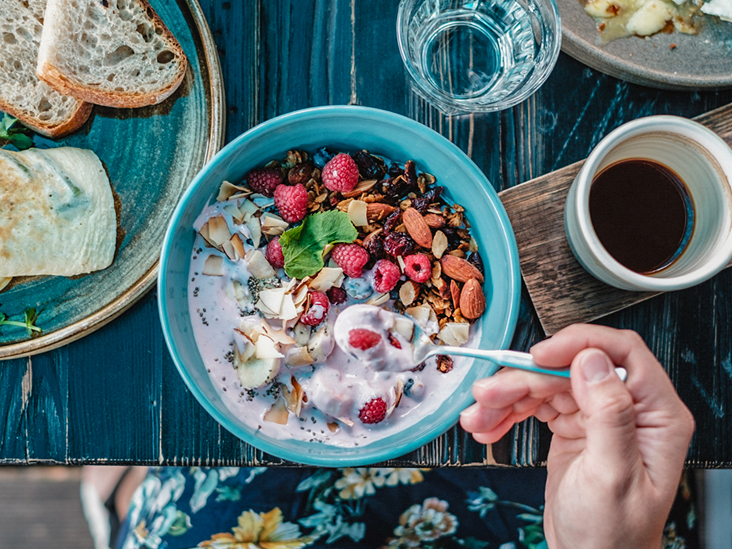
A living healthy lifestyle is important for the longevity and quality of your life. Positive habits are key to better health and a lower risk of getting chronic disease. Healthy weight can be maintained by a balanced diet, regular exercise, proper nutrition, and regular exercise. There are many resources that can help you improve your overall wellbeing, such as books, brochures, and audio relaxation cassettes. Achieving a healthy body will make you feel happier and more productive.
The principles of living healthy emphasize the power of foods as medicine. This program will ensure that you live a healthy life by emphasizing high-quality food rich in nutrients. This program is different from conventional treatments. It will address your whole person and address any external factors that could contribute to disease. You can make positive changes to your health and lower your risk for chronic diseases by focusing your attention on these important areas.

You can start small with healthy habits like taking more steps every day, drinking more water, eating more fruit, and increasing your water intake. You can start small, such as not eating another serving of potatoes. But it's best to start small and build your way up to a healthier lifestyle. Even if you don't feel motivated to change your routine, you can still improve your daily life by adopting new healthy habits. It's always better to begin with a small step at a time, as it will pay off in the long run.
It is crucial to have a healthy lifestyle for long-term good health. Research has shown that a healthy lifestyle can help lower your risk of developing certain diseases, including heart disease, diabetes, and obesity. It can also improve relationships within the family. People who have a healthy lifestyle tend to live longer. There are many benefits to a healthy lifestyle. You will feel healthier and happier. You will be able fit comfortably into your favorite jeans, without feeling unfit.
Eating more fruits and veggies is the best way to be healthy. The World Health Organization defines healthy as eating more fruits and vegetables than those who don't. Additionally, the World Health Organization defines lifestyle as an amalgamation of the values and attitudes of an individual and their environment. Making wise decisions is key to living a healthy lifestyle. A balanced lifestyle is an important component of a well-balanced life. For this, you must include enough vegetables in your daily diet.

Healthy living should include eating and doing activities that support the brain's growth and development. This will keep you healthy and reduce your risk of developing diabetes. It will also help you sleep better. Healthy eating habits will allow you to live a full life. Healthy living will not only help with weight loss, but also give you more energy and longevity. Emotional health, however, is equally important. If you have high stress levels, you're more likely to smoke, drink alcohol, and argue with others. You should also practice yoga and meditate.
FAQ
What does butter have to do with men?
Butter is one of the best sources of saturated fats. This type of fat helps to build stronger bones, healthy skin, and hair.
Butter also contains vitamin K, which prevents bleeding from cuts and bruises. Vitamin K and vitamin C work together to prevent bruising.
Butter is rich in minerals such as calcium, potassium, and phosphorous. These elements promote stronger bones and teeth.
Butter has its drawbacks. Butter contains high amounts of cholesterol. A few studies have shown that too much cholesterol can increase the risk of developing coronary disease.
Butter also contains high amounts of saturated fat, which contributes to obesity and increases cholesterol.
You can spread butter on bread if you are forced to use it. Bread absorbs less oil than pasta and potatoes.
How can I lose weight by avoiding certain foods?
Avoid foods that contain trans fats. Trans fats raise LDL (the bad) cholesterol levels and reduce HDL (the good) cholesterol levels.
Trans fats can also be found in deep-fried food, fast food, packaged bakery goods, snack cakes, as well as other processed foods.
These unhealthy fats also cause inflammation, leading to heart disease and diabetes.
Foods containing artificial sweeteners should also be avoided. Artificial sweeteners can increase your risk of developing cancer.
These chemicals are found in many products, including soft drinks, candy bars, chewing gum, as well as candy bars. They also appear in meat, poultry and eggs.
Artificial sweeteners can be saccharin or cyclamate, sucralose, sorbitol or aspartame.
The American Heart Association recommends that these chemicals be avoided as they can damage DNA.
Eggs are good for us.
All the nutrients that the body needs are found in eggs. It supports strong bones, healthy heart, lungs, and stable blood sugar.
Eggs are an excellent source of protein, vitamins A, B12, D, E, K, calcium, phosphorus, iron, zinc, copper, magnesium, selenium, and riboflavin.
The cholesterol content of egg yolks is high. It does not contain any saturated fat. Eggs have less saturated oil than many other foods.
They are also low-calorie and high in sodium. They are also very versatile because you can cook them any way you want. They can be fried, poached, scrambled, boiled, hard-boil and baked.
They are extremely nutritious and simple to prepare.
Each day, you should consume at least 2 whole eggs. You can add eggs to your diet if you don't like eating eggs.
Essential nutrients are provided by eggs. You can add eggs to your daily diet now.
Statistics
- 10 pounds in a month is likely during a lean bulking phase, especially for beginners. (muscleandstrength.com)
- The PRS enabled risk stratification for overall prostate cancer and lethal disease with a four-fold difference between men in the highest and lowest quartiles (HR, 4.32; 95% confidence interval [CI], 3.16-5.89). (pubmed.ncbi.nlm.nih.gov)
- Get free shipping and 25% off today. (healthline.com)
- Are You One of the 20% of Guys (mh.co.za)
- Candidates and applicants must pass all four tests at 70% (minimum level) to graduate from Basic Deputy U.S. Marshal (BDUSM) Training. (usmarshals.gov)
External Links
How To
How can I burn fat and exercise?
Exercise can help you burn calories and increase your metabolism.
Moderate intensity exercise is a safe way to lose weight.
These are some tips to help you lose fat while working out:
-
Do cardio exercises such as walking, swimming, jogging, cycling, running, or elliptical training.
-
You can exercise for 30 mins three times per week.
-
If you want to lose more weight, add strength training to your routine.
-
Avoid intense training. You can build muscle without having to lose muscle tissue.
-
When exercising, make sure to drink lots of water. Water helps flush out toxins and keep your body properly hydrated.
-
After working out, drink low-fat protein shakes. Protein shakes boost energy and repair muscle tissue.
-
So you don’t feel hungry, eat smaller meals throughout your day.
-
Don't skip breakfast! Skipping breakfast can make you tired and sluggish.
-
Take care of your mind. Stressful situations can slow metabolism.
-
Keep a positive attitude. Studies show that people who believe they are overweight gain more weight then those who think they are attractive.
-
Get enough sleep. Lack of sleep makes it harder to burn fat.
-
Be active. Keep moving every hour.
-
Maintain a healthy diet. Eat right to feel satisfied and full for longer.
-
Find relaxation techniques. A tense mind doesn't allow your body to release stress hormones that break down muscle tissue.
A balanced diet is one that includes all of the essential nutrients required for growth.
Consider eating six small meals daily instead of three big ones. This gives your body the time it needs to process what you've eat.
For strong bones, we need 500 mgs of calcium daily. Calcium can also be found in milk products, yogurt, fortified Soy beverages, orange Juice, cereals and bread.
Calcium comes from leafy green vegetables, beans, tofu, nuts, seeds, and cheese.
Vitamin D is necessary for the body to absorb calcium. Vitamin D can also be found in some fortified foods such as eggs, fish, and yolk.
Vitamin E is essential for skin health. Vitamin E can also be found in vegetable oil, wheat germ oils, peanuts as well almonds, sunflower seeds and corn.
Your body requires zinc for normal immune function and wound healing. Zinc can also be found in legumes, oysters, meats and whole grains.
Zinc deficiency could cause fatigue, nausea, vomiting, and depression.
Consuming too much sugar can cause insulin resistance. This causes an increase in blood glucose levels. Insulin resistance is linked to weight gain.
When there is a high level of free radicals, insulin resistance can develop. Free radicals are molecules containing unpaired electrons which cause damage to cells membranes.
The main sources of free radicals are food additives.
Free radical damage may lead to cancer, heart disease diabetes, arthritis, asthma and other conditions.
A well-balanced diet rich in antioxidants is the best way for you to avoid free radical damage. Antioxidants protect against oxidative damage.
Vitamin C is found in citrus fruits and beta carotene is found in carrots.
Selenium, manganese (and zinc) are other antioxidant nutrients.
Selenium protects cells against oxidative damage from free radicals. Selenium is also found in Brazil nuts.
Copper protects your eyes, brain, eyes and red blood cell. Copper can be found in shellfish and poultry as well as meat and organ meats.
Manganese, an essential component of bone strength, is crucial. Manganese is found in brown rice, spinach, bananas, prunes, raisins, oatmeal, and lentils.
Zinc is important for healthy growth, reproduction, and wound-healing. Zn can be found in lean cuts, white fish, poultry, eggs, and other foods.